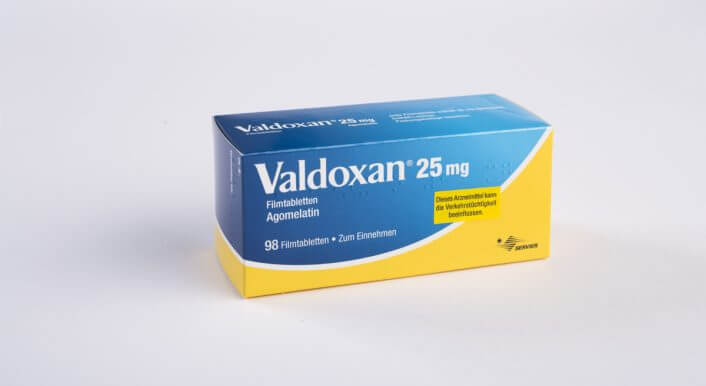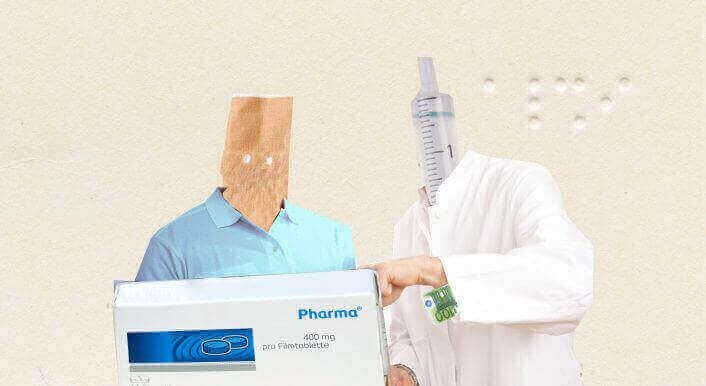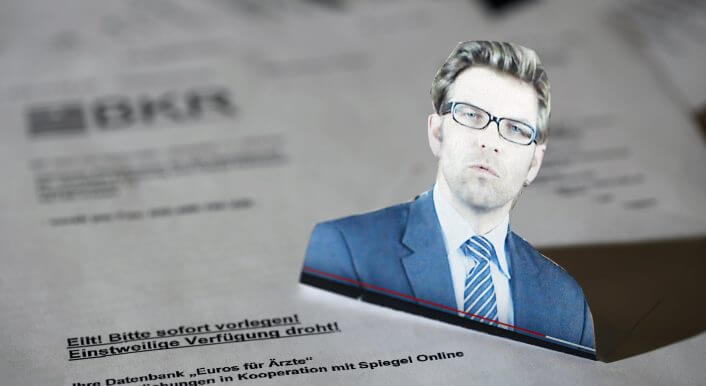Doctors eagerly welcome big pharma’s money
Pharmaceutical companies have a history of being quite generous with physicians: They pay for their contracts, invite them to congressional meetings, pay for their hotel rooms, reward them for drug monitoring. A total of 575 million euros flowed from pharmaceutical companies into the hands of more than 71,000 doctors and medical experts this past year in Germany alone. But only 20,000 of these doctors are willing to have their name and the amount of money they’ve accepted disclosed.

It was unprecedented: In late June, 54 pharmaceutical companies presented the amount of money they doled out to doctors in Germany. A total of 575 million euros flowed from pharmaceutical companies into the hands of more than 71,000 doctors, experts and medical institutions. Barely a third of these physicians were willing to have their names published alongside these numbers. But a joint collaboration with CORRECTIV and Spiegel Online led to the publishing of the first database to include the names of 20,489 physicians and how much money they received from the pharmaceutical industry in the past year. Any internet user can search this database for doctors by name, city and zip code.
Who are the doctors positioned at the top of the list? First is Dr. Hans Christoph Diener from Essen, who in the past year received more than 200,000 euros for lectures, consultations, trainings and other various expenses. Then came Dr. Juergen Rockstroh from Bonn with 148,000 euros, followed by Bochum-based Dr. Albrecht Nauck, an endocrinologist that specializes in diabetes with 128,000 euros and another endocrinologist, Dr. Thomas Forst from Mainz with 100,000 euros.
Although these four doctors are situated at the top, it does not necessarily mean they pocketed the most money in Germany. They are simply the top „earners“ of the doctors willing to have their names released.
Jens Schreiber, an internist from Magdeburg, accepted money from a record 11 different pharmaceutical companies last year. The highest of his 11 „subsidies?“ An astonishing 24,000 euros from the pharmaceutical company Novartis.
The „Transparency“ Project
“The release of this data will increase understanding and acceptance for the cooperation between pharmaceutical companies and doctors“, says Birgit Fischer, in praise of the data before its publication to the public.
Fischer is Head of Sales for the Research Association of the Pharmaceutical Industry (VFA), a big pharma lobby based in Berlin. „Access to these numbers can help the public understand how doctors and pharmaceutical companies work together in the healthcare system.“
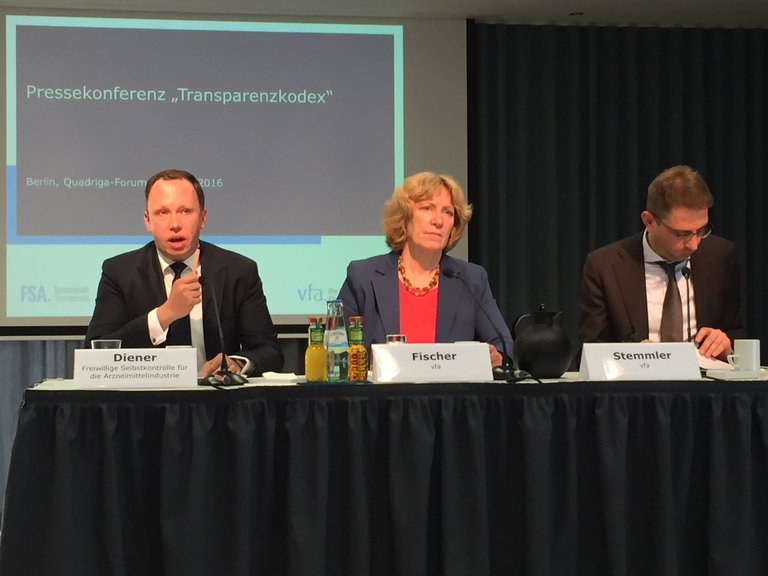
Director of VfA Brigit Fischer and FSA CEO Holger Diener (left): „More trust in the pharma industry“
Markus Grill
The transparency project, however, has a major flaw: The data is nearly indecipherable for patients. The project requires the 54 participating companies to simply host documents, with the names of the thousands of doctors, somewhere on their website. In many instances, the documents were unreadable PDFs or only included the first name of the doctor. In other cases the city was listed, but not the zip code. Nowhere was there a searchable and usable presentation of the data combined. And according to Holger Diener, the CEO of FSA, Germany’s self-regulatory body of the pharmaceutical „no such database is planned.“
Some companies even expressly forbid the use of their data. Gruenenthal, a German pharmaceutical company, wrote on their website that „the release of this data in no way provides permission for the use or editing of this data.“ UCB Pharma also posted a warning: „The release of our data is under no condition a permission for visitors to the website to continue working with this data.“
A databank with 20,000 names
Despite these warnings, CORRECTIV and Spiegel Online moved forward and used the pharmaceutical companies’ data to create a searchable, and free to use, database. This is the first database in Germany that lists more than 20,000 doctors by name and the exact sum of all finances given.
A total of 119 million euros were paid to doctors for lectures, trainings and travel expenses in the last year. That amounts to an average of 1,646 euros for every doctor.
Add to that another 366 million euros as payment for drug monitoring and other medical studies, which the companies refuse to provide additional information about. „We don’t further differentiate in the research sector“, says Birgit Fischer as she attempts to justify the current lack of transparency when it comes to drug monitoring and application observations. „When made, this was a decision that we all agreed to.“
The pharmaceutical industry always argues that these observations are important for research, but Juergen Windeler, Head of the Institute for Quality and Economics in Health (IQWiG) finds this mildly funny. „These studies are scientifically worthless“, he says. „They do not provide any worthwhile information about the use or effectiveness of a medication. That is why we don’t even look at them.“
The payments influence doctors
For years experts have debated what influence, if any, pharmaceutical payments have on doctors. Most doctors believe they won’t be influenced, even if they are sponsored by the industry. But then came an infamous study from a California hospital. Doctors working at the hospital were asked if their selection of medication was influenced by pharmaceutical referrals. 61 per cent said „not at all.“ The study’s designers then switched things around and asked whether the doctors felt their colleagues were influenced by pharmaceutical payments. This time 84 per cent of respondents said that they believe their colleagues are influenced.
In Germany, Klaus Lieb is one of many who researches the impact of payments. He is director of the Clinic for Psychiatry and Psychotherapy at the University of Mainz. „We doctors have a blindspot when it comes to conflicts of interest. We let pharmaceutical companies pay for us and still believe we are independent.“
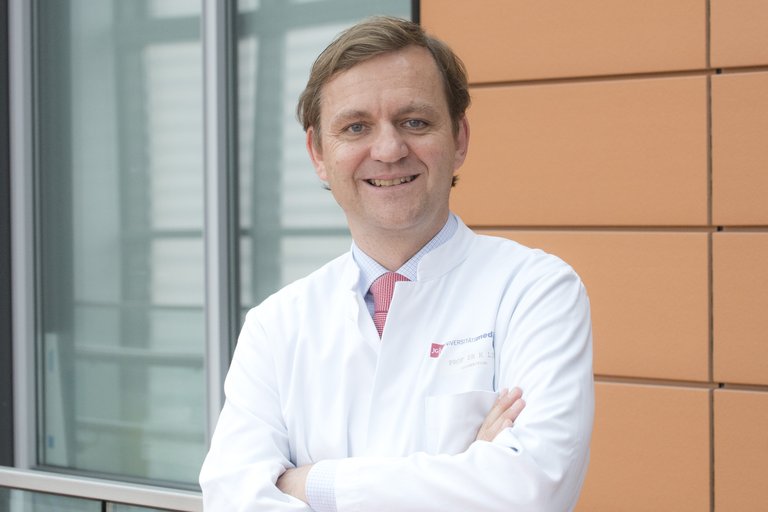
Klaus Lieb, Uniklinik Mainz: „Doctors who attend pharma sponsored trainings prescribe on average more expensive drugs.“
Peter Pulkowski
Lieb published a study in the professional magazine Plos One that showed that doctors, who frequently meet with pharmaceutical reps, prescribe more medications than those who do not. “Moreover, doctors who attend pharma-sponsored training session prescribe higher priced drugs on average.“ Additionally, doctors closely affiliated with the pharmaceutical industry emphasize the benefits of medications and downplay the risks associated with the same drugs. „In the meantime, there is a very good database with all of these findings“, Lieb say.
An example from the US
Calculations from CORRECTIV and Spiegel Online show that only 29 per cent of doctors agreed to have their names released. This low number worries Lieb. „Transparency looks different than this“, he says. „ You can’t start much with this on the individual level, especially compared to the Sunshine Act.“
The Physician Payments Sunshine Act is a law enacted by the US-government by President Barack Obama’s leadership in 2010. It mandates that all pharmaceutical companies publish the amount of money and name of the doctor they provided compensation to, regardless of whether the doctor has agreed or not.
“No laws planned“
When asked whether there will be any changes to the transparency project, since such a low percentage of doctors agreed to have this data publish, Germany’s Federal Health Minister, Hermann Groehe of the CDU party, says: „There are no additional regulations planned other than already existing transparency and corruption fighting regulations.“ Obama’s Sunshine Act is not an option for Germany, he continued: „The rules in the US face criticism. Many argue that the presentation of payments to doctors and companies, without context, increases the likelihood they’ll be seen as corrupt“, the ministerium responded when questioned.
Klaus Lieb from the University Clinic in Mainz views the release of money given to doctors as progress. „When these payments are released, the doctors take their own conflicts of interest to heart. [The doctor] has to look them in the face and acquires a certain perspective. This helps him see past his blind spots.“
Peter Sawicki, who was a top drug checker for many years as head of the IQWIG, sees the pharmaceutical industry’s transparency guidelines purely as a campaign.
“This is another measure to present themselves as clean to the public.“ He went on to stress that payments from the pharmaceutical industries massively influence doctors, a claim that is supported by multiple studies.“It is really time that we enact consequences, in light of these findings and a establish advanced training opportunities for doctors that are independent of big pharma-independent“, he says. „But the political will is missing.“
Contributors: Hristio Boytchev, Ariel Hauptmeier, Christoph Henrichs, Simon Jockers, Ivo Mayr, Philipp Seibt, Patrick Stotz, Achim Tack.

